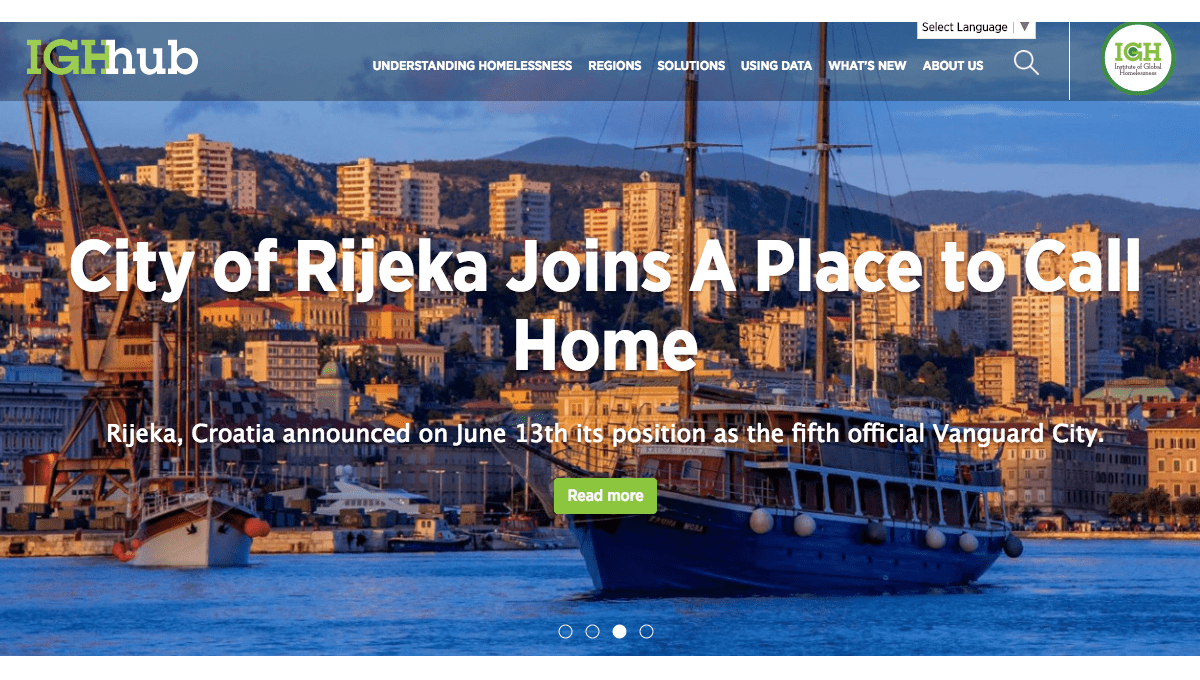IGH is committed to assisting 150 cities end street homelessness by 2030 through partnerships with a number of local, national and regional organizations across six continents.

This deadline aligns with existing global targets, including the UN Sustainable Development Goals. To meet it, they will continue to build on their four program areas:
- Supporting Leadership: They identify, equip, and connect leaders who challenge street homelessness at a local, national, or global level.
- Exchanging Knowledge: They identify and disseminate effective practice and policy solutions to street homelessness through online research and practice resources and face-to-face encounters.
- Creating a Global Infrastructure: They foster joint action, provide common language, track progress, support regional networks, and help cities access additional resources to solve the problem locally.
- Advocating for Change: They provide a voice for street homeless people and the agencies that serve them in the global arena.
- They believe cultivating leaders, exchanging knowledge, creating a global infrastructure and advocating for change are the right building blocks for a global movement to end street homelessness. They look forward to continuing to partner with you to advance the important work we have started together.
IGH partners with the Famvin Homeless Alliance in many ways. As part of their efforts to assist practitioners and decision makers to find and tailor effective practice, the IGH Hub aims to create a space where leaders across the world who are working to address homelessness, particularly among people experiencing multiple and severe disadvantage, can access resources to inform and shape their work. The IGH Hub seeks to connect practitioners, such as service providers or advocates; decision-makers, such as politicians or community leaders; researchers and academics; and people with expertise from lived experience to one another and to the best ideas and practice. To accommodate the wide variety of needs, the IGH Hub aggregates existing research in order to make it more readily available and accessible and to highlight where there are gaps in knowledge and more research is needed. Click here to get their newsletter.







0 Comments